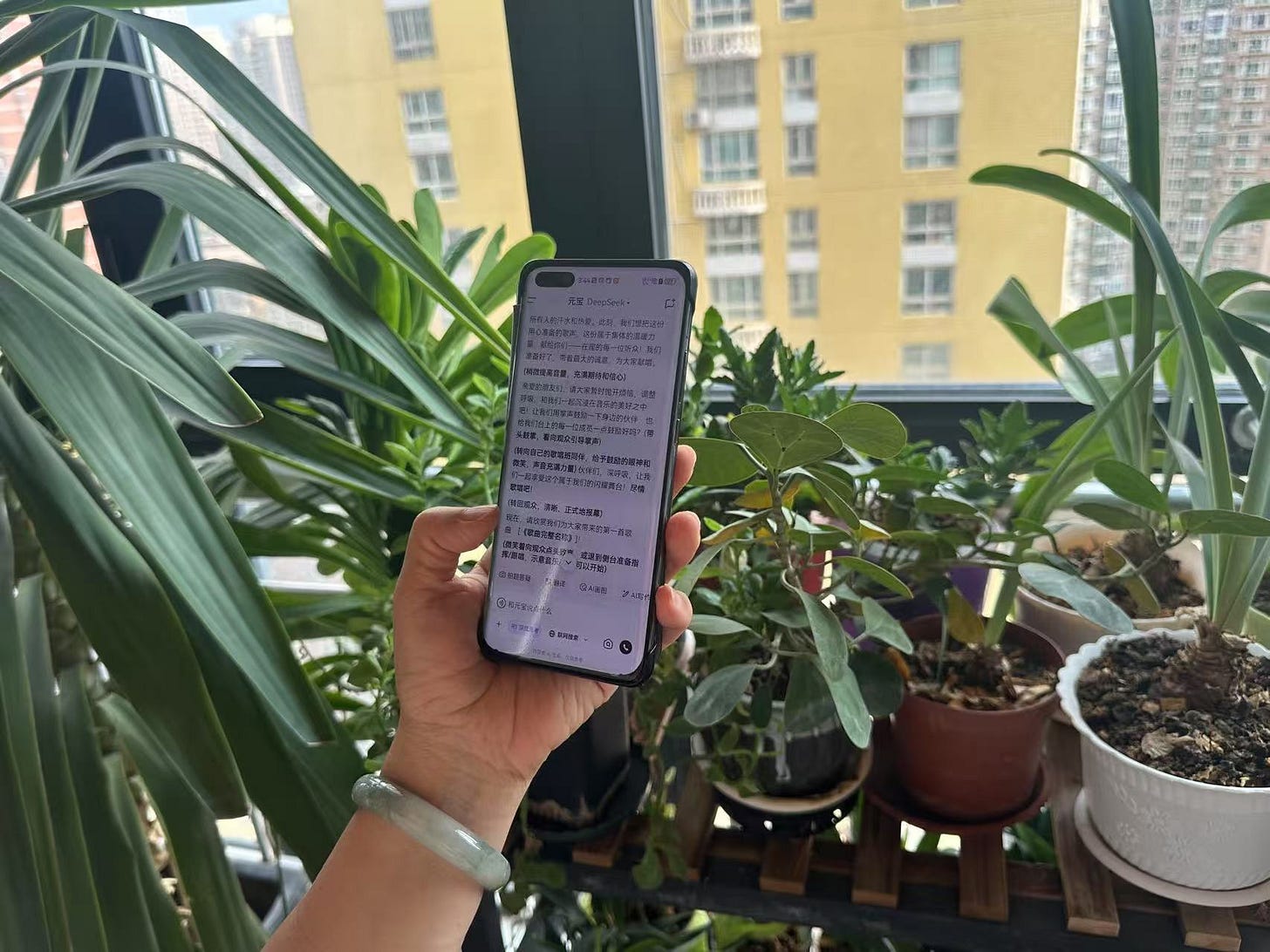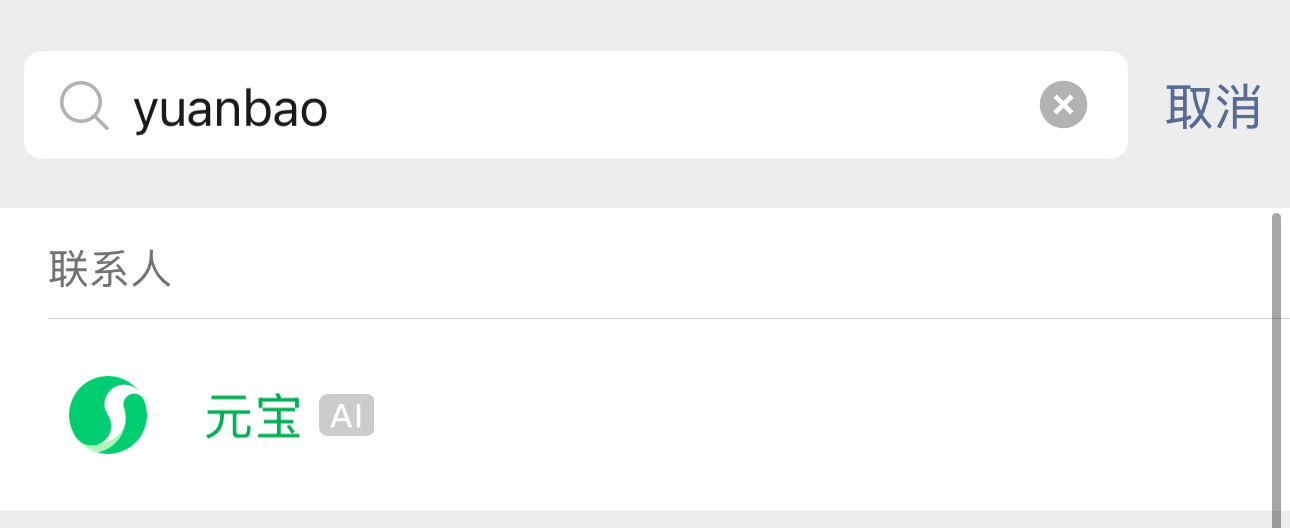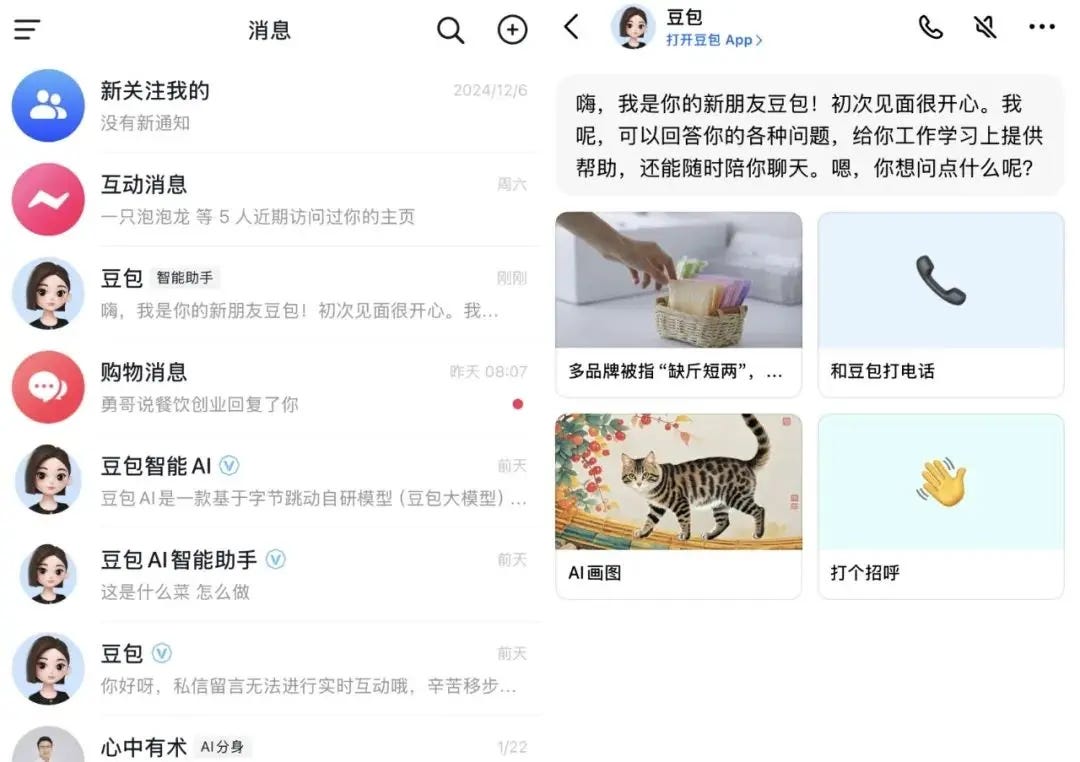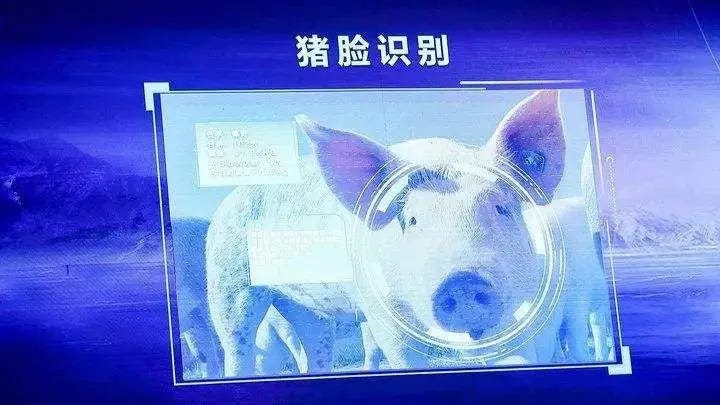So… my mom started using AI
Forget leaderboards and benchmarks. In China, AI wins when your mom actually uses it.
A few weeks ago, my mom, who just stepped into her sixties, sent a surprisingly polished message to our family’s WeChat group. It was a neatly worded intro for her elderly glee club’s upcoming performance. So refined that it immediately stood out.
I barely gave it a second thought until she followed up with another message: “How about that? Written by Yuanbao, reviewed by me.”
For those unfamiliar, Yuanbao isn’t a teacher from my mom’s elderly class. It’s an AI assistant made by Tencent, just like ChatGPT or Gemini.
Slowly, I started noticing other changes too. She was cooking new dishes, singing with better technique, even handling my son with a level of precision that made my wife say, “Mama’s parenting is getting surprisingly scientific.”
Is it because of Yuanbao? Maybe not entirely. But I couldn’t help noticing the timing.
Which made it all the more striking. My mother, a retired drafter from our local metallurgical factory, once approached even routine phone software updates with the kind of trepidation usually reserved for major life decisions. Now, she was casually crediting artificial intelligence for her writing, and she did so without consulting me, the supposed tech-savvy member of the family.
Before I could even begin to publicly apologize for not introducing AI to my parents sooner, it became clear that her embrace of this technology is hardly an anomaly.
In fact, her curiosity didn’t stop with Yuanbao. She soon discovered Doubao, ByteDance’s AI assistant, primarily because Doubao’s responses sometimes include videos.
This proved to be a significant draw. When my son would bombard her with endless children’s questions, she found herself turning to Doubao for motion explainers, illustrating concepts visually for him.
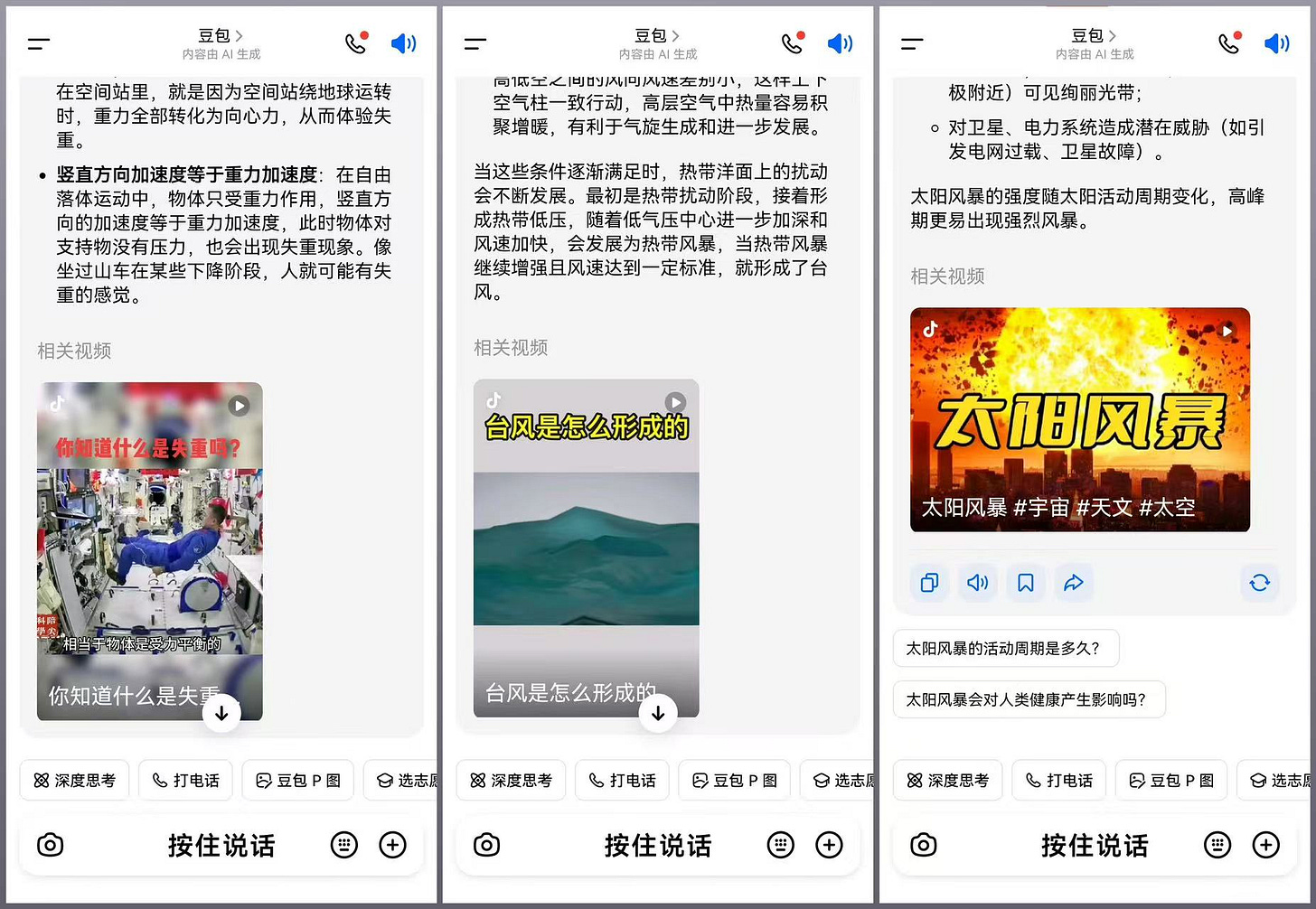
And remarkably, she gradually began to compare these AI tools with the discerning eye of a seasoned reviewer. She would engage in discussions, debating which AI “feels more natural” and which is better suited for “formal occasions.”
I was genuinely impressed. The acceptance of AI within my family, much like my own journey with these tools, seems to have spread quite organically.
However, a lingering question remains: how did she stumble upon all of this without my intervention?
For years, I've been the self-appointed tech evangelist in our family. I was the teenager who insisted we acquire our first home computer back in 1999. I was the one who pushed for getting it connected to the internet in 2003. I even gifted my parents their first iPhones and walked them through the intricacies of setting up Apple IDs and navigating the App Store…
Sure, this time I didn’t offer them ChatGPT because its geopolitical complexities made that a non-starter. But the fact that she managed to independently find and adopt these alternatives is a source of genuine curiosity for me.
So I asked my mom directly who guided her to these tools. Her answer was disarmingly simple: "They're already there." She meant they were inside her daily necessity apps: WeChat and Douyin (TikTok’s China version).
And just like that, the puzzle pieces clicked into place. This is precisely why she never had something like DeepSeek on her phone. AI was already woven into the fabric of the platforms she uses every single day.
Yuanbao, for instance, has its own WeChat bot and was once prominently promoted in WeChat’s Life Services section. Douyin offers several access points for its Doubao assistant, one embedded directly within the short video interface, alongside likes, comments, and shares. Another is tucked inside the message list, blending AI with social functions.
This subtle integration, it seems, is the true engine behind Chinese AI's quiet, organic spread into the hands of millions, even those, like my mom, who might otherwise shy away from new technologies.
It turns out, she’s not alone.
Across China, AI adoption is quietly spreading from cities to villages, driven not just by curiosity but by an aggressive push from tech giants.
Yuanbao, the same assistant my mom now uses in the city for writing, cooking tips, and even parenting advice, is showing up deep in the countryside. Tencent has painted promotional slogans on village walls, a format as familiar as it is effective in the countryside.

Douyin and Kuaishou push AI-generated selfie filters to villagers. These playful features help demystify the technology. Also from there, awareness of tools like Doubao, Yuanbao, and even DeepSeek builds gradually, often through word of mouth.
Beyond marketing, AI is also taking root in agriculture. Systems powered by machine learning are monitoring pig farms, optimizing crop yields, and automating greenhouse operations. Tencent’s AI team even trained models to grow cucumbers more efficiently, a quirky but telling example of how AI pilots start in rural China.
Healthcare is another frontier. Baidu’s AI eye-screening machines are providing diagnostics in areas where qualified doctors are scarce. Other initiatives use smart speakers and AI assistants to deliver medical advice or basic education where resources are limited.
Yet beneath this seemingly cheerful embrace of new technology lies a more sobering reality. China’s AI race is indeed reaching the everyday user, but the competitive landscape is brutally unforgiving.
While AI embedded in super-apps like WeChat and Douyin accelerates adoption, it also masks an increasingly cutthroat market. Companies are slashing prices, offering services for free, and burning through resources at alarming rates, with no guaranteed path to sustainable monetization.
Ironically, it’s not only global chip shortages or geopolitics that threaten China’s AI players. It’s relentless domestic competition, say, “内卷 Nei Juan”.
At first glance, it feels like a winner-takes-all game dominated by giants with seemingly bottomless pockets. But the reality is more layered. Survival depends not on who has the largest model or flashiest demos, but on who achieves early product-market fit or has robust existing revenue streams to subsidize the long game.
Take DeepSeek, for example. Their decision to open-source models isn’t philanthropy. It’s strategic confidence, backed by Quantitative hedge fund High-Flyer’s lucrative trading empire.
By contrast, players like 01.AI, once one of China’s celebrated Six AI Dragons, are already retreating. Not for lack of ambition, but because pure model development without real products, burns capital and patience at an unsustainable pace.
Another challenge is that for most people, AI tools still feel remote. Unless a model rides a viral wave like GPT-4 or DeepSeek R1, building meaningful adoption is slow, tedious work.
That explains why companies are embedding AI into the platforms people already use. Baichuan targets industry verticals. Tencent weaves Yuanbao into the routines of WeChat users, from city dwellers to villagers.
My mother didn’t start using Yuanbao because of a tech demo. She used it because it quietly appeared inside her most-used app, offered help, and asked for nothing more than a few seconds of trust.
Millions of others are doing the same. Most won’t and can’t pay for ChatGPT, Gemini, or Grok. But they will keep paying for Tencent Video, Tencent Meeting, or WeChat services, especially if AI subtly enhances those experiences.
Watching my mom toggle between Yuanbao and Doubao, comparing their diagloue styles with the same discernment she once brought to microwave ovens, I’m reminded the real AI race won’t be won by parameter sheets or technical benchmarks.
It will be won, quietly, in moments like these. When AI stops feeling like the future and simply becomes useful.



